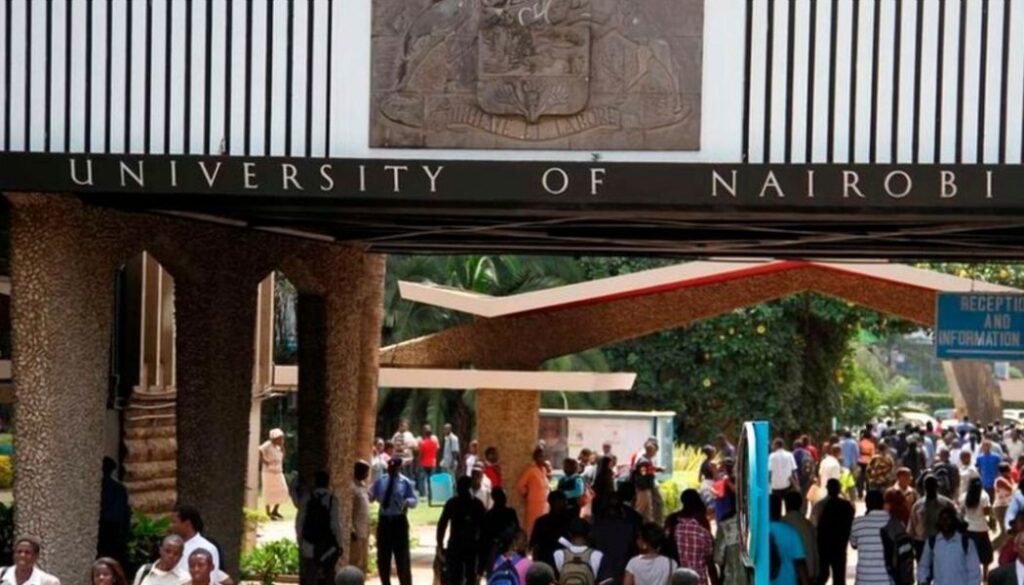University of Nairobi drops out of top 1,000 in global QS rankings

University of Nairobi drops out of top 1,000 in global QS rankings
The University of Nairobi (UoN), long considered East Africa’s premier academic institution, has fallen out of the top 1,000 universities globally in the newly released QS World University Rankings 2026.
The institution now finds itself positioned in the 1,001–1,200 range, a notable decline from its 901–950 bracket in the previous year.
This drop for Kenya’s sole representative in the comprehensive assessment of over 1,500 universities across 106 countries underscores a broader trend affecting institutions in sub-Saharan Africa.
According to QS Senior Vice President Ben Sowter, only three of the 19 sub-Saharan African universities listed improved their ranking, all of them from South Africa.
“With only three of the 19 institutions in sub-Saharan Africa improving their rankings, universities need to ensure they keep up with advancements in higher education worldwide,” Sowter stated.
The University of Nairobi now shares a similar tier with regional counterparts such as Makerere University in Uganda and the University of Lagos in Nigeria, reflecting increased competition and a general struggle for competitiveness among many African institutions on the global stage.
The QS World University Rankings are based on a multifaceted set of indicators, including institutional reputation, research output, international engagement, graduate employment, and sustainability.
While UoN has seen a general decline in its overall standing, it continues to demonstrate strength in specific areas.
Notably, the university scored a high 95.6 in the ‘Employment Outcomes’ category, ranking 72nd globally. This metric assesses how well graduates perform in the job market, suggesting that UoN still equips its students with valuable skills for employment despite its broader challenges.
This latest ranking serves as a stark reminder of the mounting troubles that have plagued the University of Nairobi in recent times.
These issues include severe financial distress and leadership and governance instability.
UoN has been grappling with profound financial challenges, exacerbated by reduced government funding under the Differentiated Unit Cost (DUC) model introduced in 2017.
Disband DCI – Anglican Bishops tells government
Rigathi Gachagua storms Kindiki turf ‘We’re unstoppable!
Our agreement with UDA is not based on murder – Wetang’ula’s Ford Kenya Party
Foreign Affairs PS under fire after comparing Kenya and Dutch police brutality
Former abductee Billy Mwangi claims his life is in danger
The university carried massive debts, including significant arrears in statutory deductions and staff salaries, estimated to exceed Ksh12 billion by April 2025.
This financial strain has impacted operational capacity, infrastructure maintenance, and the ability to retain top academic talent.
The premier learning institution has also endured frequent leadership wrangles, marked by a rapid succession of acting Vice-Chancellors and public disputes between top university management, the University Council, and the Ministry of Education.
Reports of irregular appointments and power struggles have further destabilised the institution’s governance.
On May 5, 2025, the university council issued a letter naming Prof Elijah Bitange Ndemo as the successor to Prof Margaret Jesang Hutchinson, whose term as acting Vice Chancellor (VC) concluded the same day.
However, Ndemo rejected his appointment as the new VC of the University of Nairobi, citing procedural irregularities in the selection process.
I was disappointed after the cancellation of Adani Airport deal; Raila
Former TSC CEO Nancy Macharia nominated to Murang’a County Board
Court dismisses charge against activist Rose Njeri as ambiguous and baseless
Matiang’i sends message to Gen Zs after jetting back to Kenya
Win for men as court declares part of Succession Law unconstitutional
Ben Githae begs for forgiveness after State House visit
Follow us




